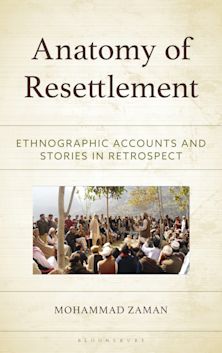- Home
- ACADEMIC
- Anthropology
- Anthropology - Other
- Gender at Work in Economic Life
Gender at Work in Economic Life
Gracia Clark (Anthology Editor) , Aurora Bautista-Vistro (Contributor) , Srimati Basu (Contributor) , Evelyn Blackwood (Contributor) , Katherine E. Browne (Contributor) , Gracia Clark (Contributor) , Lisa Cliggett (Contributor) , N Thomas Hakansson (Contributor) , Jon D. Holtzman (Contributor) , Steve D. McCracken (Contributor) , B Lynne Milgram (Contributor) , Emilio Moran (Contributor) , K Ann Pyburn (Contributor) , Katharine N. Rankin (Contributor) , Andrea D. Siquera (Contributor) , Cynthia Werner (Contributor)
- Textbook
Gender at Work in Economic Life
Gracia Clark (Anthology Editor) , Aurora Bautista-Vistro (Contributor) , Srimati Basu (Contributor) , Evelyn Blackwood (Contributor) , Katherine E. Browne (Contributor) , Gracia Clark (Contributor) , Lisa Cliggett (Contributor) , N Thomas Hakansson (Contributor) , Jon D. Holtzman (Contributor) , Steve D. McCracken (Contributor) , B Lynne Milgram (Contributor) , Emilio Moran (Contributor) , K Ann Pyburn (Contributor) , Katharine N. Rankin (Contributor) , Andrea D. Siquera (Contributor) , Cynthia Werner (Contributor)
- Textbook
This product is usually dispatched within 2-4 weeks
- Delivery and returns info
-
Flat rate of $10.00 for shipping anywhere in Australia
You must sign in to add this item to your wishlist. Please sign in or create an account
Description
This new volume from SEA illuminates the importance of gender as a frame of reference in the study of economic life. The contributors are economic anthropologists who consider the role of gender and work in a cross-cultural context, examining issues of: historical change, the construction of globalization, household authority and entitlement, and entrepreneurship and autonomy. The book will be a valuable resource for researchers in anthropology and in the related fields of economics, sociology of work, gender studies, women's studies, and economic development. Published in cooperation with the Society for Economic Anthropology. Visit their web page.
Table of Contents
Part 2 Part I: Concepts of Gender Within Economic Change
Part 3 Chapter 1: Archaeology and the Gender Without History
Part 4 Chapter 2: Rain and Cattle: Gendered Structures and Political Economy in Precolonial Pare, Tanzania
Part 5 Chapter 3: Woman-headed Households in Agrarian Societies: Not Just a Passing Phase
Part 6 Part II: Entrepreneurs as Women
Part 7 Chapter 4: Female Entrepreneurship in the Caribbean: A Multisite, Pilot Investigation of Gender and Work
Part 8 Chapter 5: Women, Modernity, and the Global Economy: Negotiating Gender and Work in Ifugao, Upland Philippines
Part 9 Chapter 6: Between Family and Market: Women and thew New Silk Road in Post-Soviet Kazakstan
Part 10 Part III: Love and Entitlements
Part 11 Chapter 7: Neoliberalism and Newar Economics of Practice: Gender and the Politics of Consciousness in a Nepalese Merchant Community
Part 12 Chapter 8: Why Would She Fight Her Family?: Indian Women's Negotiations of Discourses of Inheritance
Part 13 Chapter 9: Decision Making and Flows of Income and Expenses Among Households with Factory-Employed Members
Part 14 Part IV: Migration Engendered
Part 15 Chapter 10: Male Wealth and Claims to Motherhood: Gendered Resource Eaccess and Intergenerational Relations in the Gwembe Valley, Zambia
Part 16 Chapter 11: Age, Masculinity and Migration: Gender and Wage Labor Among Samburu Pastoralists in Northern Kenya
Part 17 Chapter 12: Women in a Brazilian Agricultural Frontier
Product details
| Published | 03 Sep 2003 |
|---|---|
| Format | Paperback |
| Edition | 1st |
| Extent | 296 |
| ISBN | 9780759102460 |
| Imprint | AltaMira Press |
| Dimensions | 229 x 150 mm |
| Series | Society for Economic Anthropology Monograph Series |
| Publisher | Bloomsbury Publishing |
About the contributors
Reviews
-
This is a very interesting and important collection of articles...what unites these papers and makes them particularly interesting is threefold: all question assumptions that have been made about gendered organization and work; all do more than simply point out those assumptions, providing a re-analysis in each particular area; and all firmly ground their analyses in concrete data. It is not only this last which sets them apart from recent cultural studies, but also the fact that they do not seem to sacrifice more perceptive and nuanced interpretations in the process...[the articles] all show that it is in fact possible to do sensitive research that is underpinned by data.All of them not only provide useful critiques of previous approaches, but also move the discipline forward by adding new analyses to it.
Susan A. Johnston, George Washington University, Anthropological Quarterly


































